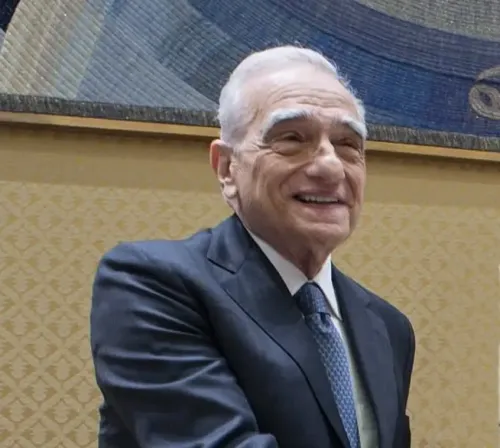Did ‘Maharaj’ Director Support the 8-Hour Shift Debate?

Synopsis
Key Takeaways
- Siddharth P. Malhotra supports structured work hours in filmmaking.
- Actors like Rani Mukerji and Kajol have practiced 8-hour shifts for years.
- The recent debate has intensified due to high-profile exits.
- Pay disparity is a critical yet evolving conversation in the industry.
- Compensation is closely tied to an actor’s box office appeal.
Mumbai, June 22 (NationPress) Amid increasing discussions regarding work-life balance and filming hours in the film industry, filmmaker Siddharth P. Malhotra has shared his thoughts on the current debate surrounding the 8-hour shift. Reflecting on his own experiences, he noted that stars such as Rani Mukerji and Kajol have been adhering to structured 8-hour workdays long before it became a popular topic. Citing the example of the film “Hichki,” which was completed in just 28 days, Siddharth emphasized the significance of discipline and coordination on set, irrespective of the shift length.
In an interview with IANS, he stated, “Each film has its own requirements. We wrapped Hichki with Rani and the kids in 28 days working 8-hour shifts. Everyone—from actors to spot boys—was in sync. Kajol has been doing 8-hour shifts since 2010. Rani does it too. Thus, Deepika’s comments aren’t groundbreaking. If a director needs a particular actor and they can only commit to 6 hours a day—so be it. It’s about aligning expectations, focusing on efficiency rather than ego.”
The ongoing discourse regarding 8-hour work shifts intensified after reports surfaced about Deepika Padukone leaving the film “Spirit.” Initially set to star alongside Prabhas, she reportedly exited due to disagreements over demands including profit-sharing, an 8-hour workday, and other terms that conflicted with the filmmaker’s vision. Following her departure, the producers replaced her with Triptii Dimri as the new lead.
Addressing the issue of pay inequality in the industry, the ‘Maharaj’ director acknowledged that while discussions have been ongoing for years, the landscape is gradually transforming. He pointed out that top stars like Deepika Padukone and Alia Bhatt are now among the highest earners in the business.
Siddharth explained that compensation in the industry is closely linked to an actor’s box office appeal. “The reality is, pay depends on your star power. The opening days of a film rely on the actor’s draw. After that, it’s the director’s duty to maintain interest. It transcends gender; it’s fundamentally about economics. If an actor drives a strong opening, they deserve their pay. It’s simply business logic.”










